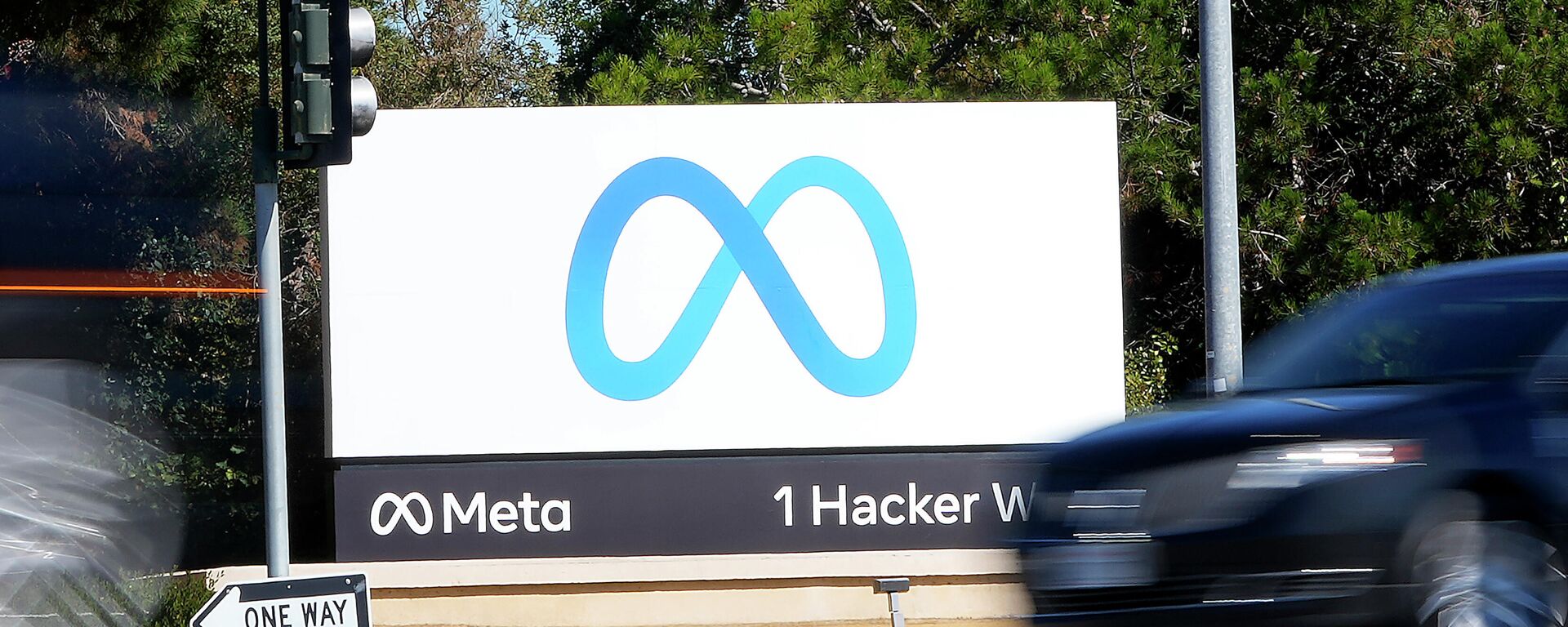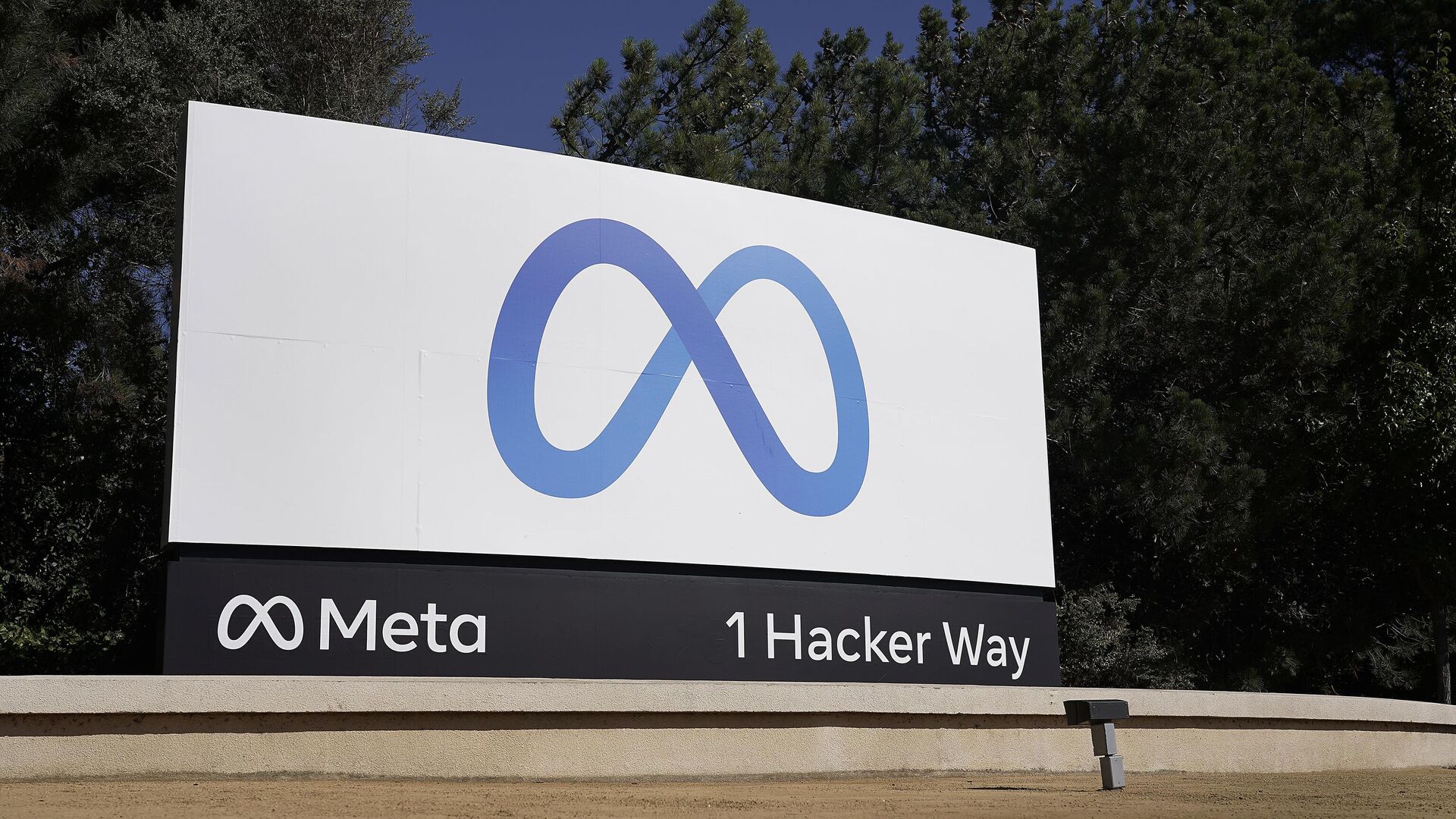https://sputnikglobe.com/20230206/all-you-need-to-know-about-facebook-moderator-abuse-case-as-court-rules-meta-can-be-sued-in-kenya-1107013374.html
All You Need to Know About Facebook Moderator Abuse Case as Court Rules Meta Can Be Sued in Kenya
All You Need to Know About Facebook Moderator Abuse Case as Court Rules Meta Can Be Sued in Kenya
Sputnik International
A Kenyan labor court has ruled on Monday that Meta Platforms Inc., the parent company of Facebook, could be sued in the country on charges related to forced labor, human trafficking, freedom of association.
2023-02-06T13:57+0000
2023-02-06T13:57+0000
2024-09-18T09:37+0000
africa
east africa
meta
kenya
facebook
https://cdn1.img.sputnikglobe.com/img/07e7/02/06/1107015325_0:0:3073:1728_1920x0_80_0_0_7d0416912c6a2c622a8479770479eccf.jpg
A Kenyan labor court ruled on Monday that Meta Platforms Inc., the parent company of Facebook, could be sued in the country on charges related to forced labor, human trafficking, and freedom of association, which are outlawed under Kenyan labor law and the constitution.In a lawsuit filed on May 10, a former outsourced Facebook content moderator working for Sama, Daniel Motaung, accused Meta, along with its largest outsourcing partner in Africa, Nairobi-based Samasource Impact Sourcing Inc., of union busting, forced labor, wage theft, racial discrimination, psychological torture, unequal pay for equal work, and human trafficking, among other accusations.With the ruling issued, the court is expected to meet on March 8 to discuss how it will proceed to a hearing, where all parties will be represented.As the case is considered the first-ever of its kind to legally challenge Big Tech outsourcing activity across the globe, Sputnik takes a closer look at what is behind the accusations and what awaits both the alleged victim and Meta, the social media giant, and its contractor, which provides graphic content moderation for Facebook in Africa in 11 of the continent's languages.Daniel Motaung's Experience with Meta and SamaMotaung, a South African national in his late 20s, arrived in Nairobi in 2019 after he was accepted for a job at an outsourcing company called Sama, formerly known as Samasource until 2021. He says he took the job in an attempt to pull his family out of poverty.The young man says that the company flew workers to Kenya from other parts of Africa, focusing on Africans from disadvantaged backgrounds, but with good knowledge of local African languages. The job postings, according to him, did not say they would be content moderators or subjected to the “emotionally and mentally devastating” content that allegedly caused him and his colleagues to suffer trauma and post-traumatic stress disorder (PTSD).According to Motaung and the testimonies of other current and former content moderators for Meta in Nairobi, the content includes videos of murders, beheadings, rapes, suicides, and child sexual abuse.In 2019, after over six months into the job, Motaung was fired after he led roughly 100 workers with the aim to demand Sama provide better working conditions and access to quality mental health care. He claimed that they were paid as little as between $1.50 and $2.20 per hour to view the graphic content in Kenya, while Facebook pays its staff in the United States around $15 per hour for doing the same job.In Motaung's dismissal letter, Nairobi-based Sama said the decision was made because the employee had put their relationship with Facebook at risk. Sama told the media later that the employee was fired because he was “bullying” and “coercing” his colleagues.Alleged Violations of Kenya’s Labor Law and ConstitutionThe case, filed by UK-based nonprofit Foxglove Legal and the Kenyan law firm Nzili and Sumbi Advocates on behalf of Motaung, accuses Meta and Sama of violations of the Kenyan constitution, including freedom of association, freedom of expression, dignity, fair remuneration, and reasonable working conditions.The suit is asking for compensation to be determined by the court and awarded to all former and current content moderators at Sama. In addition, it demands that content moderators receive the same psychological care as Facebook employees, and raise all outsourced content moderators’ pay.In addition, the suit asks that the Kenyan government strip Sama of its export license that gives it a tax break, undergo an outside human rights audit, and issue monthly reports on how it is implementing the demands the auditor makes.Meta’s Response to LawsuitMeta, a multinational company registered in the United States, initially responded to the court filing by asking that its name be removed from the lawsuit, arguing that it could not be sued in Kenyan courts because it is a foreign corporation that does not operate in Kenya. The Big Tech firm also said that Motaung was never an employee of the company, and therefore it cannot be held liable for the conditions he experienced.However, Motuang’s lawyers planned to argue in their lawsuit that Sama is an “agent” of Meta, and that Sama employees use Facebook’s internal systems, work closely with its staff, and follow a work schedule set by Meta.Meta has not yet responded to Monday’s court ruling.Sama Quits Content Moderation Operations for MetaLast month, Sama, founded in 2008, announced discontinuing its content moderation services it provides to social media platforms starting March 2023, and said its future activities would focus only on labelling work, also known as “computer vision data annotation.” The company also revealed its plan to lay off 3% of its staff due to the “current economic climate,” promising to offer “several support programs for those impacted.”The company added, “All impacted employees will receive severance packages and employees engaged in content moderation will receive well-being support for 12 months after the last day of employment.”In response to Sama’s decision to end its content moderation program for Facebook, the social media giant, which owns Facebook, Instagram, and WhatsApp, hinted that it would look for other partners to do the content reviewing job.Later, Meta contracted Luxembourg-based, Majorel, which formerly worked as a content moderator for TikTok in the Middle East and North Africa, to replace Sama in moderating Facebook content in Sub-Saharan Africa.Another Africa-Related Lawsuit Against MetaIn December 2022, in a lawsuit at Kenya’s High Court, Meta Platforms Inc. was accused of amplifying hate speech and inciting violence in Africa.Two researchers from Ethiopia, Abrham Meareg and Fisseha Tekle, along with Kenyan human rights group the Katiba Institute, with support from legal non-profit organization Foxglove, filed a lawsuit accusing the multinational corporation of playing a role in inciting violence during the two-year armed conflict in the Tigray region in northern Ethiopia.During the conflict, Meareg’s father, chemistry Professor Meareg Amare, was shot and killed in November 2021. According to the court filings, the murder followed several hateful posts on Facebook targeting the professor that led to the deadly attack against him.The lawsuit, which is calling for $2 billion in restitution, described Meta’s action as a “woeful failure to address violence on its platform” and its design, which “promotes and prioritizes hateful, incitement and dangerous content.”*Meta is banned in Russia over extremist activities.
https://sputnikglobe.com/20221215/no-guarantees-meta-not-interested-in-combatting-hate-speech-in-africa-experts-say-1105477977.html
africa
east africa
kenya
Sputnik International
feedback@sputniknews.com
+74956456601
MIA „Rossiya Segodnya“
2023
Muhammad Nooh Osman
https://cdn1.img.sputnikglobe.com/img/07e4/08/0e/1080170965_2:0:2050:2048_100x100_80_0_0_1de8233c87df0979e7e74f61b6ffacad.jpg
Muhammad Nooh Osman
https://cdn1.img.sputnikglobe.com/img/07e4/08/0e/1080170965_2:0:2050:2048_100x100_80_0_0_1de8233c87df0979e7e74f61b6ffacad.jpg
News
en_EN
Sputnik International
feedback@sputniknews.com
+74956456601
MIA „Rossiya Segodnya“
Sputnik International
feedback@sputniknews.com
+74956456601
MIA „Rossiya Segodnya“
Muhammad Nooh Osman
https://cdn1.img.sputnikglobe.com/img/07e4/08/0e/1080170965_2:0:2050:2048_100x100_80_0_0_1de8233c87df0979e7e74f61b6ffacad.jpg
kenyan labor court, kenya, facebook, meta, sama, facebook moderators, facebook kenya, facebook court, lawsuit, meta sued in kenya, facebook sued in kenya, facebook sued, meta sued,
kenyan labor court, kenya, facebook, meta, sama, facebook moderators, facebook kenya, facebook court, lawsuit, meta sued in kenya, facebook sued in kenya, facebook sued, meta sued,
All You Need to Know About Facebook Moderator Abuse Case as Court Rules Meta Can Be Sued in Kenya
13:57 GMT 06.02.2023 (Updated: 09:37 GMT 18.09.2024) Muhammad Nooh Osman
Writer/Editor
In May 2022, Daniel Motaung, a former outsourced Facebook content moderator, became the claimant in a legal case against Meta*, Facebook’s parent company, and its Kenya-based outsourcing partner Sama, accusing the two firms of forced labor, human trafficking, union busting, and failure to provide “adequate” mental health support.
A Kenyan labor court ruled on Monday that Meta Platforms Inc., the parent company of Facebook, could be sued in the country on charges related to forced labor, human trafficking, and freedom of association, which are outlawed under Kenyan labor law and the constitution.
In a
lawsuit filed on May 10, a former outsourced Facebook content moderator working for Sama, Daniel Motaung, accused Meta, along with its largest outsourcing partner in Africa, Nairobi-based Samasource Impact Sourcing Inc., of union busting, forced labor, wage theft, racial discrimination, psychological torture, unequal pay for equal work, and human trafficking, among other accusations.
“Since the petition has raised certain actual issues that are yet to be determined, it would be inopportune for the country to strike out the two respondents from the matter,” Judge Jacob Gakeri said in his ruling on Monday, as quoted by the media.
With the ruling issued, the court is expected to meet on March 8 to discuss how it will proceed to a hearing, where all parties will be represented.
As the case is considered the first-ever of its kind to legally challenge Big Tech outsourcing activity across the globe, Sputnik takes a closer look at what is behind the accusations and what awaits both the alleged victim and Meta, the social media giant, and its contractor, which provides graphic content moderation for Facebook in Africa in 11 of the continent's languages.
Daniel Motaung's Experience with Meta and Sama
Motaung, a South African national in his late 20s, arrived in Nairobi in 2019 after he was accepted for a job at an outsourcing company called Sama, formerly known as Samasource until 2021. He says he took the job in an attempt to pull his family out of poverty.
The young man says that the company flew workers to Kenya from other parts of Africa, focusing on Africans from disadvantaged backgrounds, but with good knowledge of local African languages.
The job postings, according to him, did not say they would be content moderators or subjected to the “emotionally and mentally devastating” content that allegedly caused him and his colleagues to suffer trauma and post-traumatic stress disorder (PTSD).
According to Motaung and the testimonies of other current and former content moderators for Meta in Nairobi, the content includes videos of murders, beheadings, rapes, suicides, and child sexual abuse.
“I went in OK and went out not OK,” Motaung said in a statement shared by the Real Facebook Oversight Board, a group of independent civil rights advocates and experts. “It changed the person I was.”
In 2019, after over six months into the job, Motaung was fired after he led roughly 100 workers with the aim to demand Sama provide better working conditions and access to quality mental health care. He claimed that they were paid as little as between $1.50 and $2.20 per hour to view the graphic content in Kenya, while Facebook pays its staff in the United States around $15 per hour for doing the same job.
In Motaung's dismissal letter, Nairobi-based Sama said the decision was made because the employee had put their relationship with Facebook at risk. Sama told the media later that the employee was fired because he was “bullying” and “coercing” his colleagues.
Alleged Violations of Kenya’s Labor Law and Constitution
The case, filed by UK-based nonprofit Foxglove Legal and the Kenyan law firm Nzili and Sumbi Advocates on behalf of Motaung, accuses Meta and Sama of violations of the Kenyan constitution, including freedom of association, freedom of expression, dignity, fair remuneration, and reasonable working conditions.
“Sama and Meta acted negligently by failing to provide adequate precautions for the safety, health and wellbeing of the Facebook Content Moderators and exposing them to risk, danger and injury of which they were aware,” Motaung said in the court papers.
The suit is asking for compensation to be determined by the court and awarded to all former and current content moderators at Sama. In addition, it demands that content moderators receive the same psychological care as Facebook employees, and raise all outsourced content moderators’ pay.
In addition, the suit asks that the Kenyan government strip Sama of its export license that gives it a tax break, undergo an outside human rights audit, and issue monthly reports on how it is implementing the demands the auditor makes.
Meta’s Response to Lawsuit
Meta, a multinational company registered in the United States, initially responded to the court filing by asking that its name be removed from the lawsuit, arguing that it could not be sued in Kenyan courts because it is a foreign corporation that does not operate in Kenya. The Big Tech firm also said that Motaung was never an employee of the company, and therefore it cannot be held liable for the conditions he experienced.
However, Motuang’s lawyers planned to argue in their lawsuit that Sama is an “agent” of Meta, and that Sama employees use Facebook’s internal systems, work closely with its staff, and follow a work schedule set by Meta.
Meta has not yet responded to Monday’s court ruling.
Sama Quits Content Moderation Operations for Meta
Last month, Sama, founded in 2008, announced discontinuing its content moderation services it provides to social media platforms starting March 2023, and said its future activities would focus only on labelling work, also known as “computer vision data annotation.”
The company also revealed its plan to lay off 3% of its staff due to the “current economic climate,” promising to offer “several support programs for those impacted.”
“We have chosen to refocus our business and concentrate solely on our computer vision annotation technology platform and solutions,” the Nairobi-based company announced on January 10, 2023. “This means we will discontinue our work that isn’t closely aligned with that vision, including Natural Language Processing and our Content Moderation business, effective March 2023.”
The company added, “All impacted employees will receive severance packages and employees engaged in content moderation will receive well-being support for 12 months after the last day of employment.”
In response to Sama’s decision to end its content moderation program for Facebook, the social media giant, which owns Facebook, Instagram, and WhatsApp, hinted that it would look for other partners to do the content reviewing job.
“We respect Sama's decision to exit the content review services it provides to social media platforms. We will work with our partners during this transition to ensure there is no impact on our ability to review content,” a Meta spokesperson said.
Later, Meta contracted Luxembourg-based, Majorel, which formerly worked as a content moderator for TikTok in the Middle East and North Africa, to replace Sama in moderating Facebook content in Sub-Saharan Africa.
Another Africa-Related Lawsuit Against Meta
In December 2022, in a lawsuit at Kenya’s High Court,
Meta Platforms Inc. was accused of amplifying hate speech and inciting violence in Africa.
Two researchers from Ethiopia, Abrham Meareg and Fisseha Tekle, along with Kenyan human rights group the Katiba Institute, with support from legal non-profit organization Foxglove, filed a lawsuit accusing the multinational corporation of playing a role in inciting violence during the two-year armed conflict in the Tigray region in northern Ethiopia.

15 December 2022, 13:28 GMT
During the conflict, Meareg’s father, chemistry Professor Meareg Amare, was shot and killed in November 2021. According to the court filings, the murder followed several hateful posts on Facebook targeting the professor that led to the deadly attack against him.
The lawsuit, which is calling for $2 billion in restitution, described Meta’s action as a “woeful failure to address violence on its platform” and its design, which “promotes and prioritizes hateful, incitement and dangerous content.”
“Meta/Facebook are not interested in addressing such cases as incitement because the model by which material is shared and disseminated demands algorithmic boosting in order to gain profits. The more notorious and noxious, the more likely the material will receive greater coverage. While moderation of content does take place, the overall business rationale is to still permit such material to be spread on the platforms, even as claims are made about reforms and oversight,” Dr. Binoy Kampmark, a senior lecturer at the School of Global, Urban and Social Studies at RMIT University, Australia, told Sputnik.
*Meta is banned in Russia over extremist activities.




